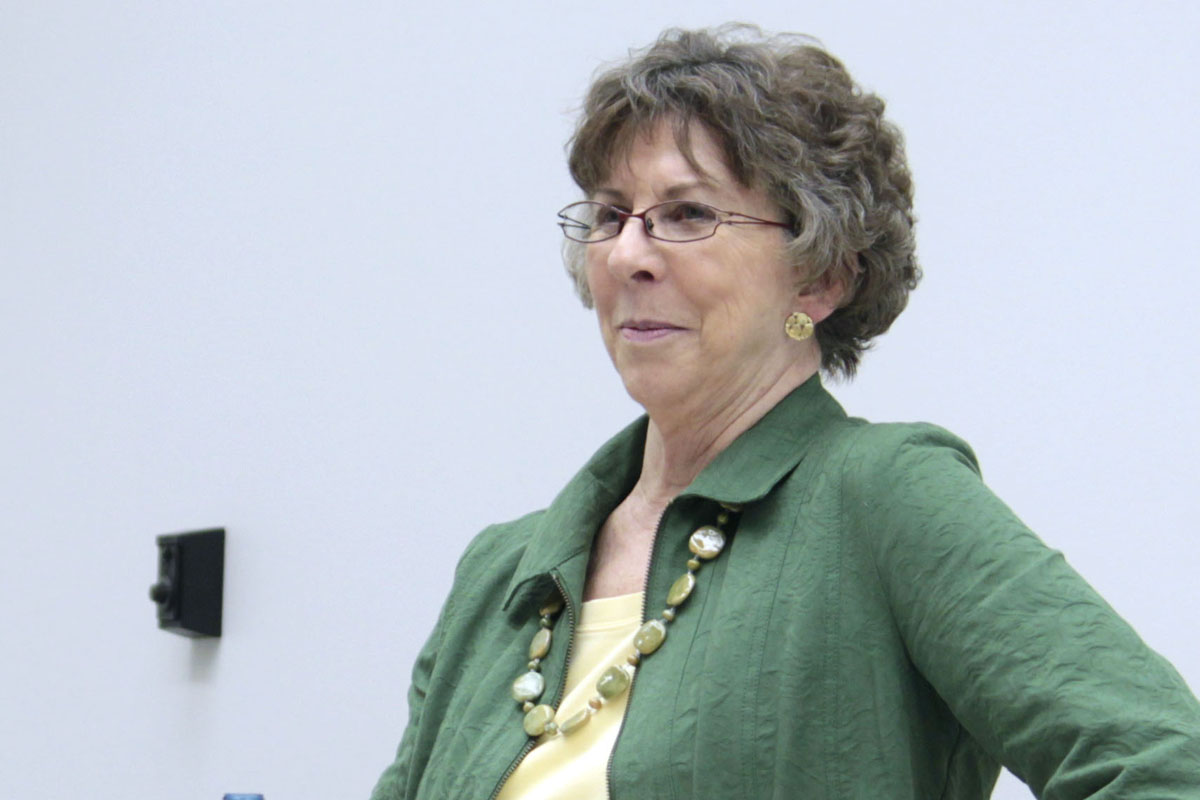Tribune editor speaks, defends newspapers
Salt Lake Tribune editor in chief Nancy Conway paid a visit to USU Tuesday to speak to students interested in journalism. Her comments centered on the future of the news industry, job opportunities and the role of journalism in democracy.
“The death of newspapers is a myth,” Conway said. “We are not folding up the print shop or going out of business as many have predicted … we do have our challenges, but we have more than a fighting chance.”
Conway said in the last 20 years, about 15 newspapers have closed down in Utah. However, with the advent of online newspapers, general readership is higher than ever. She said new technologies such as smart phones, Kindles and social media have created a diverse set of venues for accessing and distributing news.
“This is where newspapers come in,” she said. “People still want news they can trust brought to them by professional, reliable and credible news organizations like ours.”
She said professional news organizations not only tell the news, but also put it into context.
Journalism department head Ted Pease, who invited Conway to come and speak, said he, like Conway, believes journalism is about finding and relaying reliable information on issues that affect people’s lives.
“The delivery systems are changing,” he said, “but the central function of the newspaper as a reporting and information-gathering mechanism is not, and it’s as essential to society as it’s ever been.”
Conway said she believes journalism is absolutely essential to a functioning democracy.
“The Salt Lake Tribune takes its watchdog role very seriously,” she said. “We see legislature and the government coverage that we do as as our single most important coverage. Our entire staff is engaged in that coverage.”
Pease said without press acting as a watchdog on politicians and other people in power, people often don’t know what’s happening until it’s too late.
“That’s a pretty important service,” he said. “If daily newspapers failed, that would have many dire implications for all of us, not just journalists, but citizens who depend on them to make informed decisions in a participatory democracy.”
Conway cited the passage and repeal of house bill 477 as an example of when journalists are needed to inform citizens about the legislature’s actions.
“If you care about community, if you care about country, if you care about democracy, you have to care about journalism,” she said.
In a question and answer session following her lecture, Conway spoke about job opportunities in the new industry. She said the most important things students can do to prepare is improve their writing skills. She also said it is helpful to have done multiple internships and to have as much practical experience as possible.
As a final note, Conway said students must be prepared to receive angry letters, phone calls and death threats if they plan to continue in journalism.
“We are far from perfect,” she said. “Sometimes we don’t get the whole story. Sometimes we don’t tell it in a balanced way. Sometimes we don’t follow up the way we would. But however long the list of our inadequacies or our screw-ups, it is better to have us than not to have us. The press is part and parcel of what keep this community, our state and our country free.”
Broadcast journalism major Lacey Haggan said she felt the visit was very helpful to her as a student.
“She gave a lot of great insight on what goes on behind the scenes with the Salt Lake Tribune and really helped us to understand what exactly they do and why they do it,” Haggan said.
She said she felt more enthusiastic about entering the journalism field having met with Conway, and that, although broadcast journalism is her emphasis, she would see it as a privilege to work with a company like the Salt Lake Tribune.
– robmjepson@gmail.com

